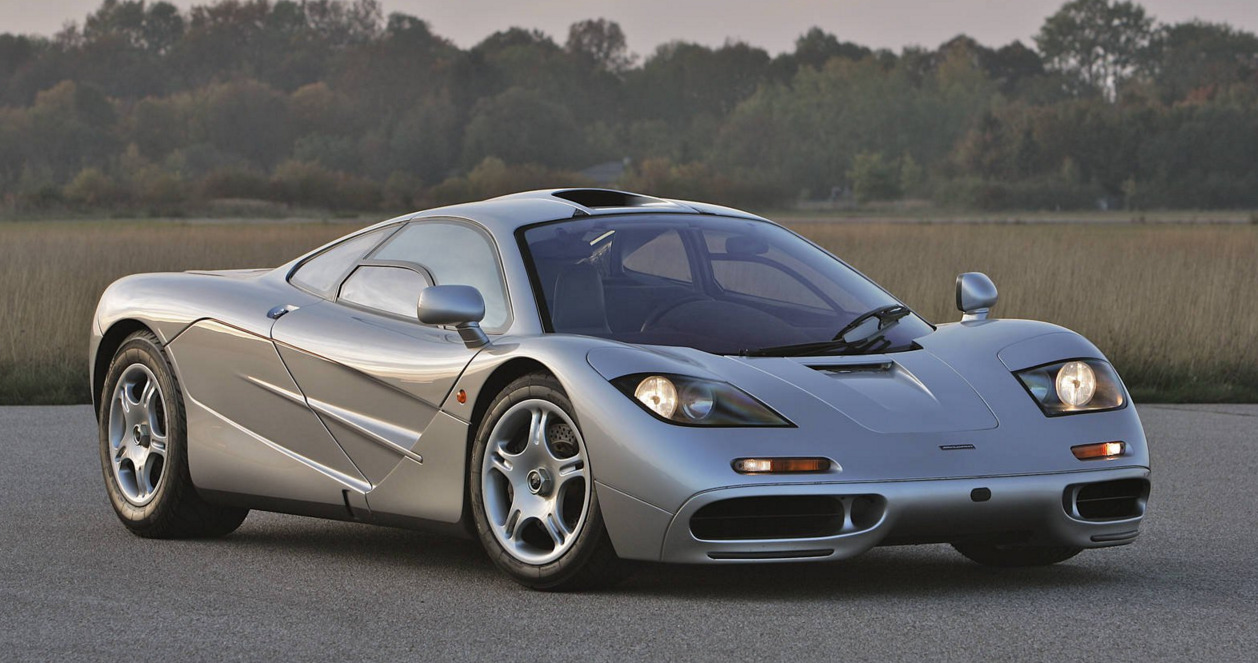
The McLaren F1 is an iconic supercar that was produced by McLaren Automotive between 1992 and 1998. It is widely regarded as one of the greatest sports cars ever created and holds a special place in automotive history. Here's a brief history of the McLaren F1:
Development:
The idea for the McLaren F1 was conceived by Gordon Murray, McLaren's chief engineer, in the late 1980s. Murray aimed to create the ultimate road car by combining Formula 1 technology, lightweight construction, and extraordinary performance. Development began in 1990, with a dedicated team working on every aspect of the car's design and engineering.
Design and Engineering:
The McLaren F1 featured a unique and innovative design. It was a three-seater car with a central driving position, placing the driver in the center of the car with two passengers positioned slightly behind and to the sides. This configuration provided optimal visibility and an immersive driving experience.
The car's body was constructed using a lightweight carbon fiber monocoque chassis, making it one of the first production cars to utilize this advanced material. The chassis, combined with lightweight aluminium and magnesium components, resulted in an exceptionally low weight for a high-performance car.
Powertrain and Performance:
Powering the McLaren F1 was a naturally aspirated 6.1-liter V12 engine, designed by BMW's M Division. It produced a remarkable 627 horsepower and 480 lb-ft of torque, allowing the F1 to achieve incredible speed and acceleration. The engine was mated to a six-speed manual transmission, providing precise gear changes.
With its low weight and powerful engine, the McLaren F1 boasted astonishing performance figures. It had a top speed of 240+ mph (386+ km/h) and a 0-60 mph (0-97 km/h) time of just 3.2 seconds, setting new benchmarks for a road-legal production car.
Racing Success:
While primarily designed as a road car, the McLaren F1 also had success in motorsport. The F1 GTR, a racing variant of the F1, competed in various endurance races, including the 24 Hours of Le Mans. In 1995, a modified F1 GTR claimed an incredible overall victory at Le Mans, beating purpose-built racing prototypes and solidifying the car's racing pedigree.
Legacy and Rarity:
The McLaren F1's limited production run and its groundbreaking design have contributed to its enduring legacy. Only 106 units were ever produced, including the road-going F1, F1 LM, and F1 GT models, making it an extremely rare and highly coveted collector's car. The F1's combination of performance, innovation, and exclusivity has cemented its status as a true automotive icon.
The McLaren F1 remains a symbol of engineering excellence, pushing the boundaries of what is possible in a road car. Its remarkable performance, striking design, and rarity ensure its place among the most iconic and revered supercars in history.
McLaren F1 Technical Specifications
| Engine | BMW S70/2 60 Degree V12 |
| Position | Mid Longitudinal |
| Aspiration | Natural |
| Valvetrain | Chain Driven DOHC w/4 Valves per Cyl, Variable Inlet Timing |
| Displacement | 6064 cc / 370.0 in³ |
| Bore | 86.0 mm / 3.39 in |
| Stroke | 87.0 mm / 3.43 in |
| Compression | 10.5:1 |
| Power | 467.6 kw / 627.1 bhp @ 7400 rpm |
| Specific output | 103.41 bhp per litre |
| bhp/weight | 550.09 bhp per tonne |
| Torque | 649.4 nm / 479.0 ft lbs @ 5600 rpm |
| Redline | 7500 |
| Body / frame | Carbon Fibre Monocoque w/Front Upper Sub Frame, Active Aerodynamics |
| Driven wheels | RWD w/Torsen Differential |
| Front tires | Goodyear F1 P235/45ZR-17 |
| Rear tires | Goodyear F1 P315/45ZR-17 |
| Front brakes | Unassisted Vented & Cross Drilled Discs |
| Rear brakes | Unassisted Vented & Cross Drilled Discs |
| Front wheels | F 43.2 x 22.9 cm / 17.0 x 9.0 in |
| Rear wheels | R 43.2 x 29.2 cm / 17.0 x 11.5 in |
| Steering | Unassisted Rack & Pinion |
| Front suspension | Ground-Plane Shear Centre Double Wishbones w/Light Alloy Dampers, Co-Axial Coil Springs, A |
| Rear suspension | Double Wishbones w/Light Alloy Dampers, Co-Axial Coil Springs |
| Curb weight | 1140 kg / 2513 lbs |
| wheelbase | 2718 mm / 107.0 in |
McLaren F1 Maintenance & Values
